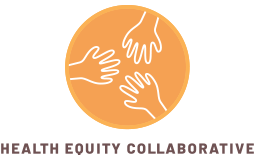15 Jun Fighting the Mental Health Stigma Faced by AAPI Communities
June 15, 2021
We expected Naomi Osaka to make news at the French Open this year, quite possibly by winning it. After all, the Japanese national is ranked Number One among women tennis players in the world, and her style of play is forthright and irresistible.
Naomi made the headlines alright, but not by winning the French Open. On May 31, she left us all gasping when she withdrew from the tournament in the second round, conceding a walk-over to her opponent. The organizers had insisted that she participate in post-match press conferences, but Naomi resisted, saying that negative questions about her game had a damaging effect on her mental health. With French Open officials refusing to budge — refusing, in truth, to show a shred of humanity to a young woman who is clearly troubled — she pulled out of the tournament.
Naomi revealed on Instagram that she had “suffered long bouts of depression since the U.S. Open in 2018,” and that she had had “a really hard time coping with that.” So she took the most drastic step she could to protect herself — walk away from competition.
Her experience will resonate with many. Nearly half of all Americans will meet the criteria for a mental health condition at some point in their lives. Mental health conditions are a widely shared experience among Americans. And yet it remains an under-discussed and over-stigmatized topic. There’s no shortage of people who react to it in the same clueless way in which the French officials reacted to Naomi.
This is especially true in Asian American and Pacific Islander (AAPI) communities, which collectively account for roughly 6% of the U.S. population. Of that 6%, 15% reported having a mental illness in 2019. That’s roughly 2.9 million people, and that only reflects those who self-reported their illness.
Despite a non-trivial share of the AAPI community dealing with mental illness, the demographic has the lowest rate of seeking help for mental health issues of any racial or ethnic group in the United States. Only 23.3% of AAPI adults with a mental illness received treatment in 2019 compared to 32.9% of Black Americans and 33.9% among Hispanic and Latino Americans.
This remarkably low rate of seeking help is due to the numerous obstacles facing the AAPI community on mental health, including a lack of culturally appropriate and sensitive care, language barriers, and scarce access to interpreters. There is also a cultural stigma, in the sense of shame that besets families when a child, or spouse, or sibling is diagnosed with mental illness. Poor mental health is seen, alas, as a product of poor parenting, or as a broader family failure.
To compound this problem, racism and violence toward AAPIs have risen considerably over the past year, along with the stress of COVID-19. Between March 2020 and March 2021, the organization Stop AAPI Hate recorded 6,600 incidents of AAPI hate. That number nearly doubled in March 2021 alone. These traumatic experiences place the community at an even greater risk of mental illness.
Too many members of the group are struggling with their mental health without the help they need. Lawmakers must take action to reconcile this reality and provide the AAPI community with critical resources and support.
This is why Congresswoman Judy Chu of California recently reintroduced the Stop Mental Health Stigma in Our Communities Act, which focuses on combating mental health stigma in AAPI communities. This bill would require the Substance Abuse and Mental Health Services Administration to create and implement an education and outreach strategy which focuses on mental health issues within AAPI populations.
It is high time Congress takes steps in normalizing discussions of mental health and enabling those affected to gain access to the support they need. Passing this bill would signal a critical step in supporting AAPI communities and eradicating the devastating effects of mental health stigma.


